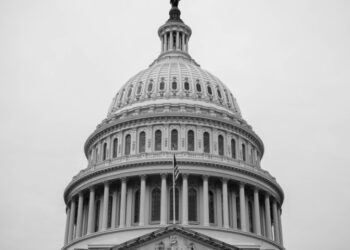Strategic Lawsuits Against Public Participation (“SLAPP”) Law in Texas
The Texas Citizens Participation Act (“TCPA”) permits plaintiffs to file an early-stage motion to dismiss on the basis that the legal action is wrongfully based on that party’s exercise of their constitutional rights: namely, the right of free speech, right to petition, or right of association, as defined by the TCPA. Such a motion has the impact of staying the case, including all discovery, pending resolution of the motion by the trial court, and if that decision is appealed, pending an appeal of the trial court’s decision.
If a party successfully shows that the action was based on, related to, or in response to the exercise of one of the three enumerated rights, the burden then shifts to the non-movant to either (1) establish by clear and specific evidence a prima facie case for each element of the challenged claim(s) or (2) show the action is exempt from the TCPA. If the other party cannot meet that burden, the court must dismiss the challenged claim(s). If the other party meets its burden, the court must still dismiss any claim for which the moving party can establish a valid defense by a preponderance of the evidence.
Critics of the TCPA argue that the law has essentially created a heightened pleading standard for those seeking to bring claims to enforce contractual and other rights, and the stay imposed on cases once a motion to dismiss has been filed has resulted in significant delays in seeking injunctive relief. Motions to dismiss under the TCPA are entitled to an expedited appeals process, but this process can still take months to resolve, which can be significant, particularly in cases where a party is seeking preliminary injunctive relief.
The TCPA also contains a unique fee shifting provision (its main deterrent force), which requires courts to award reasonable attorneys’ fees and sanctions to a successful movant, but only makes an award of attorneys’ fees permissive if the non-movant prevails and shows the motion was filed frivolously or with the intent to delay.
Changes to Texas SLAPP Statute
Earlier this year, Governor Greg Abbott signed House Bill 2730 into law, and this new bill makes changes to the TCPA. It went into effect on September 1, 2019, and applies to actions filed on or after that date. The changes to the law narrow the scope of applicability by modifying when the TCPA can be used, how it can be used, and who can use it.
Currently, one can file a SLAPP motion if the “legal action is based on, relates to, or is in response to a party’s exercise of the right of free speech, right to petition, or right of association.” “Exercise of right of free speech” means a communication made in connection with a “matter of public concern.” Significant changes are being made to these definitions which will change the applicability of the TCPA in future lawsuits.
- “Legal Action” – to prevent gamesmanship by attorneys the new definition clarifies that the term “legal action” does not include procedural actions, alternative dispute resolution proceeding, or post-judgment enforcement action. The new definition clarifies that the law does apply to lawsuits seeking declaratory relief – an issue about which Texas appellate courts are currently in conflict.
- “Matter of Public Concern” – the non-exclusive categorical list of what constitutes a “matter of public concern” will be replaced with a more generalized approach encompassing statements or activities about public officials, public figures, or other persons who have drawn substantial public attention due to their official acts, fame, notoriety, or celebrity; matters of political, social, or other interest to the community; and subjects of concern to the public.
- “Exercise of Right of Association” – will be narrowed by requiring it to be tied to matters relating to a governmental proceeding or a matter of public concern.
The new law also narrows the scope of the TCPA by removing the “current provision that the legal action need only “relate to” a party’s exercise of their constitutional rights as defined by the TCPA. Instead, now, the action must be “based on” or “in response” to a party’s exercise of those rights.
New TCPA Exemptions – A number of exemptions to the TCPA are being added for: trade secret misappropriation and enforcement of non-disparagement agreements or covenants not to compete in an employment or independent contractor relationship; family code cases and applications for protective order; claims under the Texas Deceptive Trade Practices Act; medical peer review cases; eviction suits; attorney disciplinary proceedings; and common law fraud claims. There are, however, some exemptions to certain of these exemptions for the media and online business reviews and ratings.
Finally, the new law expressly states that a governmental entity, agency, or an official or employee acting in an official capacity does not qualify as a party who can invoke the law’s protections.
From an evidentiary standpoint, the new law makes clear that courts may consider the type of evidence that would be admissible in a summary judgment proceeding. It also provides a filing framework timeline that is consistent with Texas and local rules regarding other dispositive motions, including a movant providing 21 days’ notice for a hearing and a nonmovant’s response being due no later than 7 days before the hearing. In addition to the more structured framework, the new law provides some much-needed flexibility for litigants to be able to agree to file a SLAPP motion beyond the current 60-day deadline.
When applying the law, all references to “preponderance of the evidence” have been removed. The amended statute will now merely require a movant to demonstrate that the legal action in question is covered by the TCPA. When a movant seeks to prevail on an affirmative defense, it requires a party show they are entitled to judgment as a matter of law. Finally, although the new law will maintain the mandatory attorney’s fees award, it now makes the award of sanctions discretionary.
Important Changes on the Horizon
Most significantly, the new law will narrow the scope of the TCPA, limiting its application to only those cases where constitutional rights are implicated. Below is a summary of 10 additional key changes to the TCPA. The new law will:
- Limit the scope of the TCPA by removing the current provision that the action need only “relate to” a party’s right to petition, free speech or right of association.
- Narrow the definition of “exercise of the right of association” by requiring the activity to relate to a governmental proceeding or a matter of public concern.
- Clarify the definition of “matter of public concern” to include statements and activities regarding public officials or figures; matters of political, social, or other interest to the community; or that are a subject of concern to the public.
- Expand the definition of “legal action” to cover claims for “declaratory relief,” while expressly excluding actions such as alternative dispute resolution proceedings and post-judgment enforcement actions.
- Exclude employment actions, among others, seeking recovery for trade secret misappropriation or corporate opportunities or to enforce a non-disparagement agreement or a covenant not to compete; certain family law matters; eviction suits; attorney disciplinary proceedings; and actions based on common law fraud.
- Lower the movant’s burdens of proof to show that a legal action is based on or in response to the exercise of the right of free speech, the right to petition, or the right of association and requiring that the movant merely “demonstrates” (rather than show by preponderance of the evidence) that the legal action is covered.
- Heighten the movant’s burden to prove an affirmative defense by requiring the party to show it is entitled to judgment as a matter of law.
- Specify that the court may consider evidence that would be admissible under the summary judgment standard, rather than just the pleadings and supporting or opposing affidavits.
- Eliminate the mandatory award of sanctions to a permissive award for a successful movant.
- Modify the filing framework timeline to require that the movant must provide at least 21 days’ notice before the date of the hearing, and the non-movant’s response is due no later than seven days prior to the date of the hearing.
This is a complicated area of law, and if you are facing such legal issues, you should consult with an attorney that knows how to maneuver through TCPA statute and the new requirements and changes.


 نیازمندیها
نیازمندیها





















